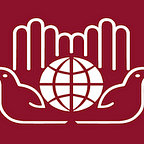Blockchain for Humanity: Announcing Fordham IIHA and CCEG Partnership
July 10, 2017, New York — The Institute of International Humanitarian Affairs (IIHA) at Fordham University and the Centre for Citizenship, Enterprise & Governance are pleased to announce a formal partnership. The academic partnership will allow for the continuation and further development of both institutions’ growing focus on innovation and technology for humanitarian action and social good.
Grounded in social justice and humanitarian ethics, the Institute of International Humanitarian Affairs endeavors to make the global response to humanitarian crises sustainable, effective, and dignified. In pursuit of this mission, the IIHA Innovation Lab facilitates the development of new solutions to complex humanitarian challenges surrounding data and technological advancement.
The Centre for Citizenship, Enterprise & Governance (CCEG), has been working since 2011, growing a research hub “concerned with the development and use of impact metrics as a measure to promote a just, prosperous and sustainably secure global society.” Since early 2016, CCEG has moved from capturing non-financial and intangible value to transacting it through the Seratio distributed ledger technology.
The Memorandum of Understanding signed by both organizations will further strengthen the cooperation which began two months ago on the role and potential of blockchain technology in humanitarian action.
The agreement starts a series of exchanges in research and education and anticipates the launch of joint events and projects that will aim to facilitate the development of blockchain-based humanitarian solutions.
“Together we will investigate the potential and challenges of ‘smart’ humanitarian services, particularly surrounding the circular economy and humanitarian financing. CCEG will bring its expertise in intangible impact measurement, and collaborate in developing policies, metrics and indicators to be used on blockchain platforms to bring to the light the effective value of classic but hard to measure humanitarian interventions, such as protection or prevention,” said Giulio Coppi, IIHA Innovation Fellow.
Visioning the partnership outcomes, Professor Olinga Ta’eed said “This is one of the most exciting collaborations we have ever secured, leveraging the internationally recognised expertise and authority of Fordham’s IIHA to bring sustainable and scalable solutions to the world’s most difficult intractable problems through blended HumTech and SocialTech instruments.”
The two organizations previously held a joint-event in May 2017, entitled Measuring and Delivering Intangible Impact through Blockchain. Professor Coppi joined CCEG Director Olinga Ta’eed and Barbara Mellish, President of Blockchain Alliance for Good, for the roundtable discussion on multi-sector approaches of blockchain for social good.
The partnership between the two institutions will facilitate further opportunities to co-host events, co-develop concrete technological tools for humanitarian action, and launch joint initiatives on blockchain and emerging technologies.
The next initiative will be a Blockchain for Humanity Summit hosted in New York City at Fordham University in October of 2017.
##ENDS##
Press contact
Angela Wells, IIHA Communications Officer
awells14@fordham.edu
This article was originally published on the previous IIHA Blog.
